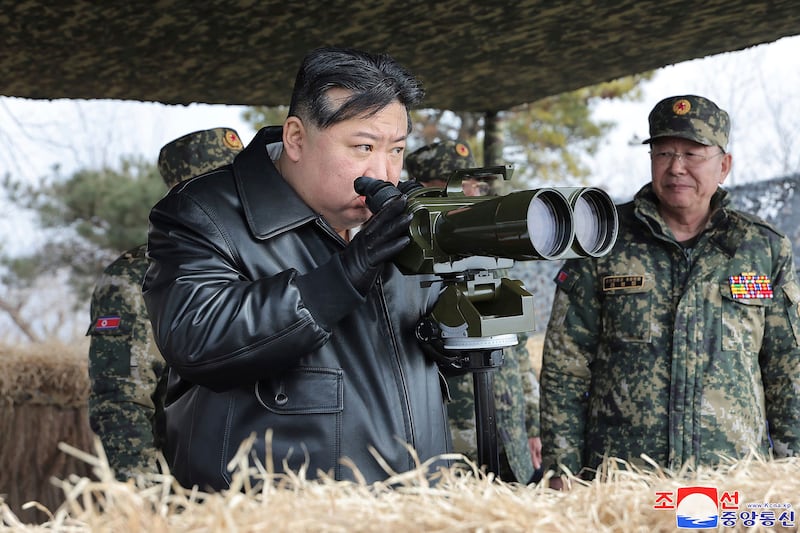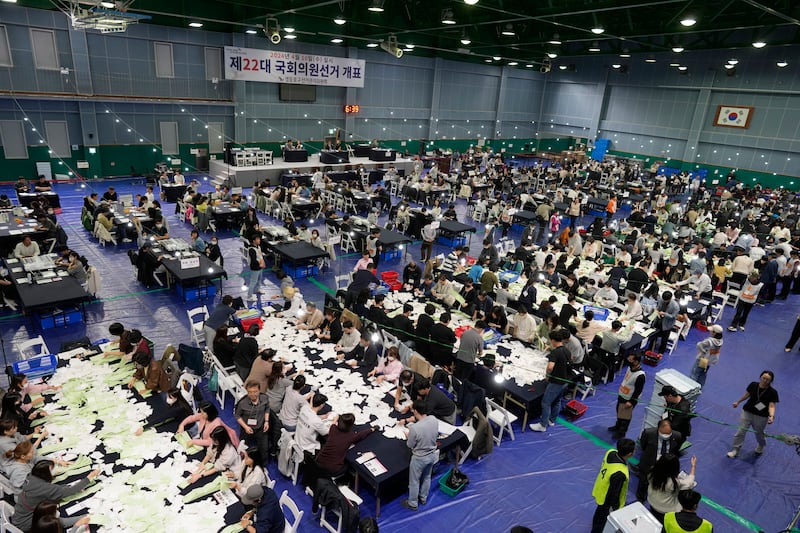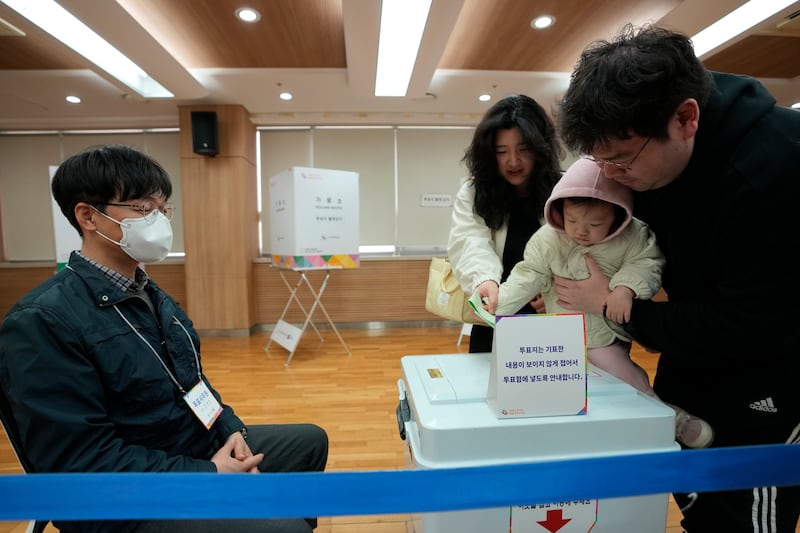South Korea's Constitutional Court has formally removed impeached President Park Geun-hye over a corruption scandal that has plunged the country into political turmoil.
It was a stunning fall for Ms Park, the country's first female leader, who came to power in 2012 only to see her presidency descend into scandal.
The presidential office said Ms Park would not leave the presidential Blue House on Friday.
A Blue House spokesman said some of Ms Park's aides were at her southern Seoul home to prepare for her return, but it has not been determined exactly when she will leave the Blue House.
The spokesman said Ms Park has no plans to issue a statement over the ruling on Friday.
The ruling by the eight-member panel opens her up to possible criminal proceedings, and makes her South Korea's first democratically elected leader to be removed from office since democracy came to the country in the late 1980s.
Ms Park's "acts of violating the constitution and law are a betrayal of the public trust", acting Chief Justice Lee Jung-mi said.
"The benefits of protecting the constitution that can be earned by dismissing the defendant are overwhelmingly big.
"Hereupon, in a unanimous decision by the court panel, we issue a verdict: We dismiss the defendant, President Park Geun-hye."
Ms Park's party said it "humbly accepts" the ruling and that it feels responsible for her downfall.
South Korea must hold an election within two months to choose Ms Park's successor.
Liberal Moon Jae-in, who lost to Ms Park in the 2012 election, currently enjoys a comfortable lead in opinion surveys.
Whoever becomes the next leader will take over a country facing a hostile North Korea, a stagnant economy and deep social and political divides.
Pre-verdict surveys showed that 70-80% of South Koreans had wanted the court to approve Ms Park's impeachment.
But there have been worries that Ms Park's removal would further polarise the country and cause violence between her supporters and opponents.
Thousands of people, both pro-Park supporters, many of them dressed in army-style fatigues and wearing red berets, and those who wanted Park gone, gathered around the Constitutional Court building and a huge public square in central Seoul.
Hundreds of police were on hand, while the streets near the court were lined with barricades.
Two people died as protests erupted following the court's decision.
A South Korean hospital official said a man in his 70s, believed to be a Park supporter, died from head wounds after falling from a police bus in front of the court. Police later confirmed a second death, without giving further details.
Thousands of Ms Park's supporters reacted angrily to the verdict, shouting and hitting police officers with flag poles, and climbing on buses the police used to create a perimeter protecting the court.
Meanwhile, South Korea's defence minister has ordered the military to be on alert for possible North Korean provocations attempting to exploit "unstable situations at home and abroad".
In a video conference with military commanders, Defence Minister Han Min Koo said North Korea can make "strategic or operational" provocations at any time. The North has test-fired ballistic missiles in recent weeks.
North Korea's state-run Korean Central News Agency published a short dispatch on the court ruling in Seoul, anticipating Ms Park will now come under investigation as a "regular criminal".
Ms Park's parliamentary impeachment in December came after weeks of Saturday rallies that drew millions who wanted her resignation.
Overwhelmed by the biggest rallies in decades, the voices of Park supporters were largely ignored. But they have recently regrouped and staged fierce pro-Park rallies.
People on both sides had threatened not to accept a Constitutional Court decision that they disagree with.
One of Ms Park's lawyers told the court last month that there will be "a rebellion and blood will drench the asphalt" if Ms Park was booted from office.
Many participants at anti-Park rallies had said they would stage a "revolution" if the court rejected Ms Park's impeachment.
"If Park accepts the ruling and soothes those who opposed her impeachment, things will be quiet," said Yoon Tae-Ryong, a political scientist at Seoul's Konkuk University. "But looking at what she's done so far, I think that might be wishful thinking."
Others disagreed, saying violent protests would not be supported by the general public.
Prosecutors have arrested and indicted many high-profile figures over the scandal, including Ms Park's confidante Choi Soon-sil, top Park administration officials and Samsung heir Lee Jae-yong.
But Ms Park has avoided a direct investigation thanks to a law that gives a sitting president immunity from prosecution for most alleged crimes.
Since she is now no longer in power, prosecutors can summon, question and possibly arrest her.
Her critics want to see Ms Park appear on TV while dressed in prison garb, handcuffed and bound like others involved in the scandal. But some analysts worry that could create a backlash by conservatives.
The United States said the removal of Ms Park is a domestic issue that does not affect its strong alliance with the country.
State Department spokesman Mark Toner said the US will continue to work with the acting president, prime minister Hwang Kyo-ahn, and looks forward to whomever South Koreans choose in a presidential election to be held within two months.
Mr Toner said Ms Park's removal is "a domestic issue on which the United States takes no position," and that it is up to the South Korean people to determine their country's future.
He said the two nations' alliance "will continue to be a linchpin of regional stability and security".
Japan's top diplomat said the country will continue to work with a South Korean government led by Ms Park's successor.
Foreign Minister Fumio Kishida told reporters he would not comment on the court ruling that removed the impeached president, citing internal politics.








